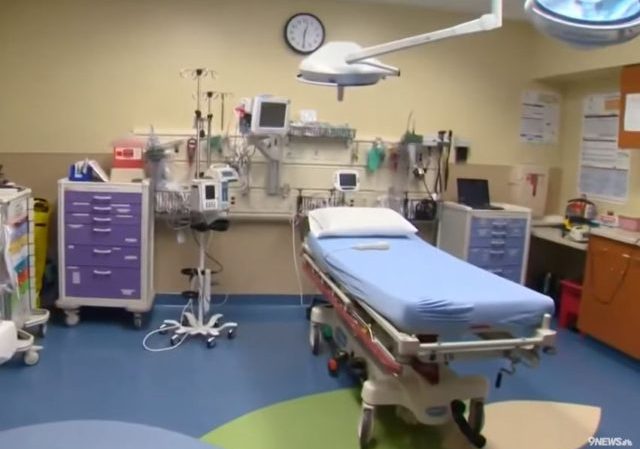NPR Caught Spreading Fake News About Hospital Bed Situation in Some Southern States

Not surprisingly, the mainstream media appears to be learning no lessons after instances where they were caught peddling fake news stories about hospital bed situations in various parts of the country, like the KFOR story about how patients who had supposedly overdosed on ivermectin were overwhelming some ambulance services and Oklahoma emergency rooms to the point gunshot victims were allegedly being turned away.
The latest example comes courtesy of NPR, which alarmed readers and viewers alike earlier this week after reporting on an Alabama heart patient who, according to his family, died after being “turned away from 43 ICUs in 3 states” that were purportedly at capacity with COVID patients.
Here’s how they framed the story on Twitter:
In the first several paragraphs of their piece, NPR makes clear that the source for their story was not anyone they’d spoken directly to but rather the man’s obituary, which apparently reporters are trawling for stories just like this one:
Ray DeMonia, 73, was born and raised in Cullman, Ala., but he died on Sept. 1, some 200 miles away in an intensive care unit in Meridian, Miss.Last month, DeMonia, who spent 40 years in the antiques and auctions business, suffered a cardiac emergency. But it was because hospitals are full due to the coronavirus — and not his heart — that he was forced to spend his last days so far from home, according to his family.”Due to COVID 19, CRMC emergency staff contacted 43 hospitals in 3 states in search of a Cardiac ICU bed and finally located one in Meridian, MS.,” the last paragraph of DeMonia’s obituary reads, referring to the Cullman Regional Medical Center.”In honor of Ray, please get vaccinated if you have not, in an effort to free up resources for non COVID related emergencies …,” the obituary reads. “He would not want any other family to go through what his did.”
It’s only when one reads the next paragraph, assuming they’ve even read the story at all beyond the headline, that they find out Mr. DeMonia was actually admitted into the Cullman hospital, but needed to be transferred to another facility for specialized care that apparently that location did not offer:
A spokesperson for Cullman Regional Medical Center, who declined to give specifics of Ray DeMonia’s case, citing privacy concerns, confirmed to NPR that he was transferred from the hospital but said the reason was that he required “a higher level of specialized care not available” there.
Further, though NPR quoted some of the Washington Post’s write-up later on in their own piece, they also failed to point out what the WaPo had noted about how DeMonia had been in the Cullman hospital for some 12 hours before the family allegedly received the phone call about the 43 ICUs:
On the evening of Aug. 23, Ray DeMonia had heart problems and was taken to Cullman Regional. The next morning, about 12 hours after he was admitted, his daughter said her mother got a call saying that the staff had tried 43 hospitals without any luck in getting him a specialized cardiac ICU bed. They were, however, able to find an open ICU bed at Rush Foundation Hospital in Meridian, Miss.
Though the Washington Post quoted a hospital spokesperson as saying such situations were an “ongoing problem” in Alabama hospitals, not one person from the hospital confirmed the daughter’s story about the supposed capacity issues at the 43 ICUs. It wasn’t confirmed for the NPR report nor the WaPo report.
At the very least here, NPR deceived readers by making them believe two things, the first one being that DeMonia was never admitted to the Cullman hospital (false) and the second one being that the hospital couldn’t admit him due to being overwhelmed with COVID patients (also false). The Washington Post earns no brownie points for their story, either, which wasn’t much better.
And to this day, no one in any official capacity will confirm the 43 ICUs claim.
The story prompted renewed calls from some conservatives to defund NPR:
Honestly at this point, can you blame them?
— Stacey Matthews has also written under the pseudonym “Sister Toldjah” and can be reached via Twitter. —
CLICK HERE FOR FULL VERSION OF THIS STORY